“Why would you ever go back?” “Why don’t you move to Los Angeles, or come out to Denver?” “Have you at least considered Birmingham?”
Whenever I told someone, be it a stranger or someone much closer to me, that after graduating from college I was planning to move back to my hometown of Gadsden, Alabama, these are the questions I faced. Even people who saw me spend my entire undergraduate career studying inequality in the rural South, even folks who had read my senior thesis - a model for community organizing in my hometown - could not understand why I would actually go back to put that knowledge to practice.
And over the last six months of living back home, I can’t say that I don’t ever question that decision, too. Exactly zero of my 1600 peers from Harvard’s Class of 2018 moved to Alabama after graduating. Most of my friends from high school either left to find work elsewhere or are locked up in multiple low-wage jobs.
Every time a college buddy tells me about the latest function on a New York City rooftop, with every new vegan café I try in my siblings’ respective cities and every queer couple on my Instagram feed looking proud and protected in their urban bubble, I wonder if I should have abandoned my dreams of making my home a better place and moved to a place that was better made for me.
Yet like any piece of clothing worth a damn, there are pockets of people across Alabama and Appalachia that remind me where I fit.
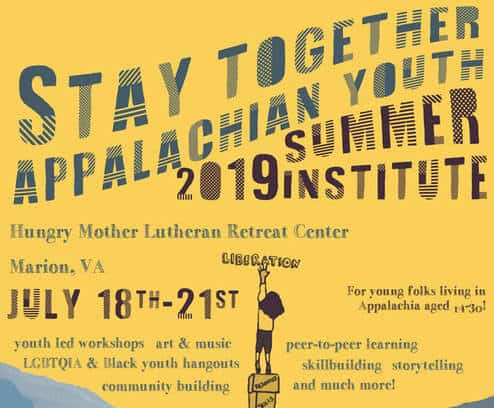
Last month I got to attend the Stay Together Appalachian Youth (STAY) Summer Institute, a gathering of young leaders, creators, and organizers across Appalachia dedicated to supporting one another in building inclusive and sustainable communities where we can and want to stay.
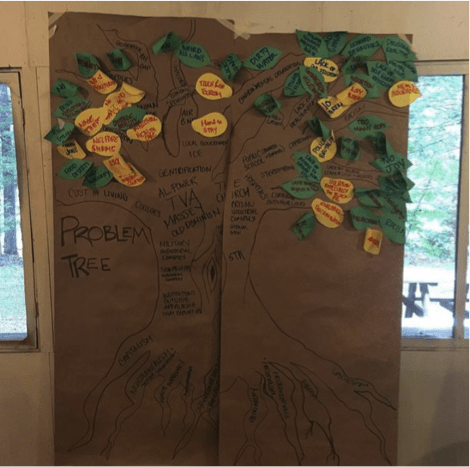
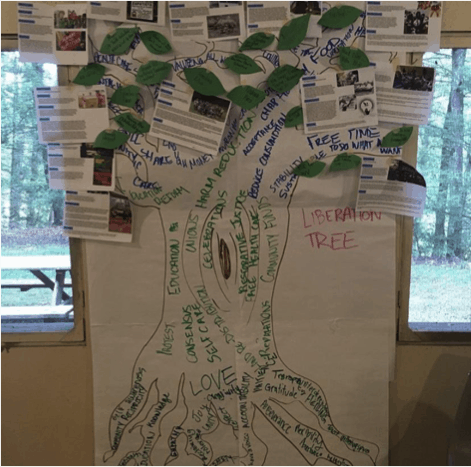
In between midnight swims in a starry lake, Appalachian love ballads, and meals of stuffed homegrown poblanos and fresh mint soda, we wrote ourselves into a people’s history of the region. We gathered as queer people, trans people, and people of color. We shared our stories and songs and skills and learned to love this land that doesn’t always love us back. We found common ground not just in the space we shared, but in the challenges we experienced and in the liberation we envisioned.
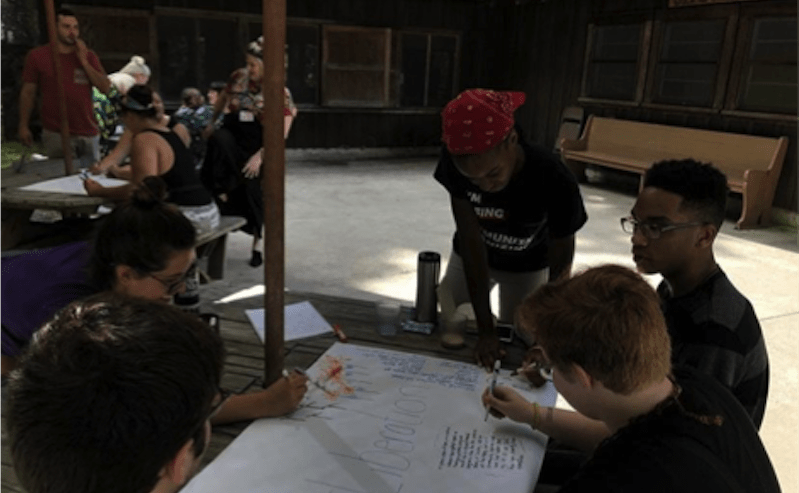
I cried the whole way home. I was a kid again: leaving summer camp, unsure of the fate of my newfound faraway friendships. I cried for the childhood camping trips and bluegrass festivals that took me from the north Alabama foothills through those curvy roads and rocky rivers of Central Appalachia.
Every time I rounded a bend and saw the setting sun’s rays spread out across those mountains, I cried for how they - and their people - have been so repeatedly dishonored. I cried over the harshest reality of growing older--realizing how the purest joys of my childhood have been tainted by corporate control, political partisanship, and liberal elitism.
At STAY I didn’t have to prove to anyone - not even myself - why I chose to come home. I found solidarity, strength, and understanding in the people who know that living here isn’t a sacrifice, but a source of power.
And even though we’re now separated by hills and hollers and highways, I am starting to see that power all around me. It bubbles up in the spring that fuels my favorite swimming hole. It’s drawn from the roots of my great-great grandfather’s fig tree. It’s flowing through the pipes of my $400/month two-bedroom. I hear it interwoven in the Southern drawls and Spanish dialects at the Trade Day flea market, in the banjo and guitar licks of Bluegrass Thursdays in my dad’s basement, in the silent acknowledgment at Walmart between another queer and myself (the “gay gaze,” I like to say).
Above all, I see that power in the leaders and members of Hometown Action and other groups in the People's Action network. Much like the folks at STAY, we are determined to make small towns and rural communities happier, healthier, and more inclusive places to live.
I thank the heavens every day that I get to serve as Hometown Action’s Appalachian Region Lead Organizer, and I’m ready to fight like hell with anyone who wants to make this place somewhere we can and want to stay.


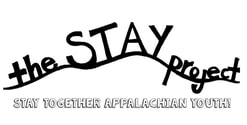


Good for you! Frequently I read defeatist comments from would-be Progressives that urge the state of ___ or the entire South or Mid-West rustbelt to secede from the union and not bother forward-thinking people. Well, I happen to live in Texas and also went to high school in Oklahoma and Indiana and don't want those places to slide into Fascist hell. Lots of good people live there and want a better life in their homelands. Thanks for making your corner of Appalachia a better place. If America is to have a future, we will be ethically browner, environmentally and economically greener, and politically bluer so people can have a whole rainbow of possibilities to live rather than decaying corporate serfdom.
Interested in your pursuits!